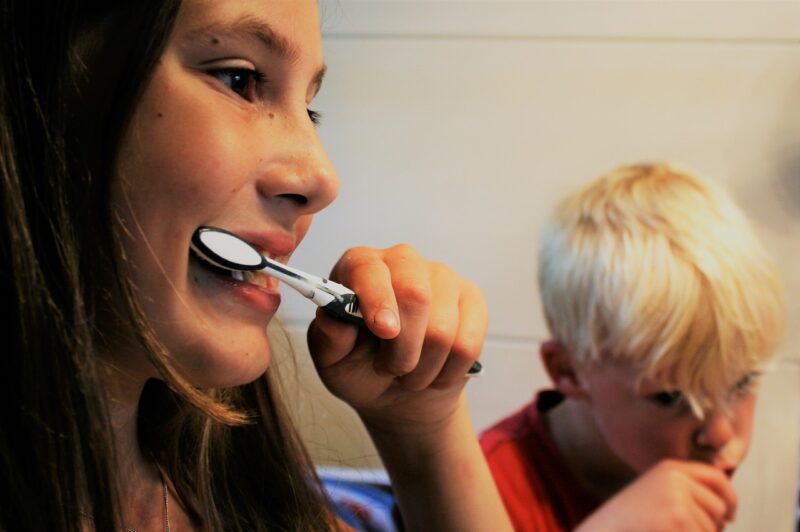Mouth Matters: A Comprehensive Guide to Mouth Hygiene
Oral health is an essential component of overall wellness that often gets overlooked in the rush and bustle of everyday life. Maintaining a healthy mouth goes further than just possessing a white smile; it plays a key role in one's bodily health, emotional confidence, and social interactions. Proper oral care can prevent a range of health problems, spanning from cavities and gum disease to more grave conditions such as heart conditions and diabetes.
Many people may not know that the state of their oral health can significantly affect their standard of living. When we neglect our teeth and gums, we face not only pain but also the possibility for more extensive and costly treatments down the road. This guide aims to highlight on the significance of oral health, providing important insights and practical tips for maintaining your mouth in top condition. By making oral hygiene a emphasis, you can pave the way for a healthier future.
The Significance of Dental Health
Sustaining high oral health is essential for general wellness. Our teeth and gums play a crucial role not only in eating but also in our community interactions and self-worth. Healthy dentition and periodontal tissue allow us to consume food with ease, communicate effectively, and show ourselves confidently. Overlooking oral hygiene can lead to major consequences, which may go beyond simple cavities or bad breath, influencing our quality of life.
Preventative care is at the core of proper oral health. Routine brushing, flossing, and dental check-ups are essential practices that help stop tooth decay, gum disease, and other oral health issues. By dedicating time in proper dental care, we can avoid more serious problems and treatments in the future. Simple daily habits can create powerful outcomes, highlighting the value of habit in our oral health journey.
Moreover, oral health is intimately linked to overall health. Research demonstrates that bad oral hygiene can contribute to various systemic diseases, including heart disease and diabetes. Maintaining healthy dentition and periodontal tissue can improve our general health, illustrating that caring for our mouths is not merely cosmetic but a essential aspect of our health. Thus, focusing on oral health is crucial for a healthier, more enjoyable life.
Frequent Dental Health Concerns
Maintaining excellent oral hygiene is crucial, but many individuals face common problems that can greatly affect their overall well-being. One common problem is tooth caries, which happens when plaque accumulates up on teeth and generates acids that wear away dental enamel. If allowed untreated, decay can result in holes, pain, and even dental extraction. citydent -ups and proper care practices, such as tooth brushing and flossing, can assist in avoiding this issue.
Gum disease, or gum disease, is another significant concern affecting oral health. It initiates with gum inflammation, marked by inflamed and hemorrhaging gums due to bacterial buildup buildup. If gingivitis advances, it can result in more serious conditions where the structures supporting the teeth are damaged. This not only affects the mouth but may also be connected to overall health problems, which makes it essential to manage gum hygiene in advance.
Bad breath, is often an neglected problem but can be a symptom of root dental hygiene problems. It can arise from various causes, including inadequate oral care, periodontal disease, or dental issues. Establishing a suitable oral care routine can regularly lessen this issue. However, ongoing bad breath should be addressed with a dental professional to detect and treat any possible causes.
Tips for Maintaining Oral Hygiene
Ensuring proper oral hygiene is crucial for overall health and well-being. Start with cleaning your teeth two times a day using a fluoridated toothpaste. Ensure to brush for at least 2 minutes, covering all surfaces of your teeth. This does not just removes food particles and also helps avoid plaque buildup, which can lead to cavities and gum disease. Do not forget to replace your toothbrush every 3 to 4 months or sooner if the bristles get frayed.
Flossing is an integral part of your routine hygiene practice. Flossing helps take away food particles and plaque from between your teeth, where a toothbrush may find it difficult to reach. Aim for floss at least once a day, ideally before you brush your teeth at night. Developing this habit can substantially reduce your risk of dental issues like gingivitis and tooth decay.
Regular dental check-ups in addition play a significant role in preserving oral health. Visiting your dentist at least two times a year facilitates professional cleaning and early detection of any likely problems. Your dentist can offer personalized advice on your oral hygiene routine and advise on any extra measures you may need to according to your specific dental health. Making oral health a priority will contribute to a brilliant smile and better overall health.
